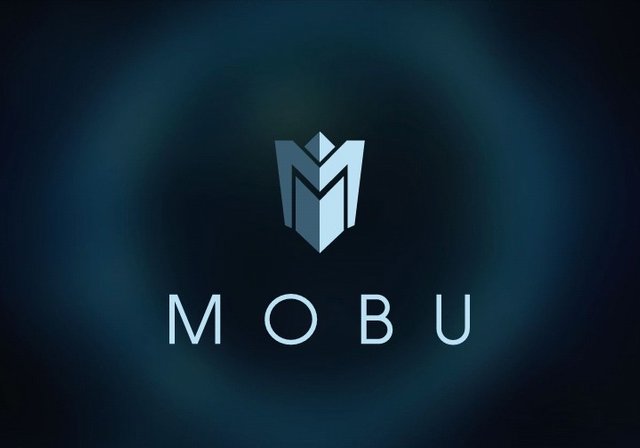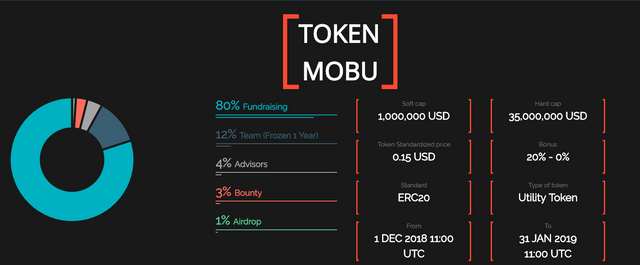MOBU|| A Decentralized and Organized ICO Plaform - 205 Steem Dollars Writing Contest- My Entry
This is my entry for the sponsored writing contest organized by @monajam. You can find the contest here
As most of us erroneously think, Blockchain did not just birth cryptocurrencies and tokens, It was a mother of more than a child and I believe that it is still pregnant with more babies.😏
The Blockchain also birthed new methods of handling assets and transactions through tokenization and smart contracts and ventures capitalization by Initial Coin Offerings (ICOs).
Being an Impromptu technological and financial development, the world was not really prepared for it. Hence, this financial and value transactions breakthrough proceeded for quite a while and gained considerable momentum without any check and balances. As a matter of fact, ICOs in 2017 raised $3.88 billion (USD)[1] and has already raised $12.57 billion in 2018[2] and Q2 is barely completed and this is primarily because of its cost effectiveness relative to Initial Public Offerings (IPOs). This unprecedented growth has dropped the scales off the world's eyes to see that ICOs as a means of venture capital funding has come to stay.
As President Ronald Regan, 1986, jocularly puts it;
" Government's view of the economy can be summed up in a few short phrases: If it moves, tax it. If it keeps moving, regulate it. If it stops moving, subsidize it."
Categorization has proved however difficult. First of all, from the legal perspective, there's been a very thin and obsure line between what security and utility tokens are. The regulatory structures built around traditional securities which are Items, bonds or stocks which have fungible, tradeable and negotiable financial value also falls around security tokens. Therefore, to avoid the legal, regulatory and technical nightmares associated with security tokens, ICOs do not lay on the bed of security tokens. In fact, 98% of ICOs launched in the first term of 2018, launched utility tokens.
...But What is a Security Token?🤔

Security Tokens
As derived from the Securities and Exchange Commission (SEC) 1946 Howey Test, I would define a security token as a token held by contributors for the sole purpose of it's anticipated value increase based on the activities of the issuer alone. Security tokens are held as an investment while the activities of the business entity results to a rise in it's value. It derives its value from an external, tradeable asset.
Many has envisaged that the most promising application would be tokenizing the shares of stocks of a company. Applied this way, not only will investors get capital gains by trading their security tokens, investors become as shareholders of the issuing entity and become entitled to dividends and voting rights of the company.
However mouthwatering penetration into the securities industry worth trillions of dollars may be, the businesses which propose to raise funds through issuing security tokens has been bugged down by federal laws and regulations. These laws and regulations severs the bridges between the traditional finance sector and the blockchain which are security tokens. Some these regulations requires the businesses annually or periodically provide documents which explicitly explains the business and indicates the financial statements and other bottleneck procedures which are not only technically strenuous but involves much more middlemen and increases the chances of corruption and manipulation. Some other legal constructs also limits the amount of tokens a particular investor can hold and insider trading. See more Acts and Regulations through the link below;
The Laws that Governs the Securities Industry
All these deter businesses from building these traditional finance to blockchain bridge to harness the multi-trillion dollar industry. Utility tokens on the other hand are free from these rules and regulations. Utility tokens are held to by contributors or investors in order to gain access to service or products provided by the issuer. Although it may initially seem like a security token prior to the service or product launch. E.g ClearCoin(XCLR) token is an example of a utility token whose services are blockchain ads.
To allow businesses easily sail through these tempest of regulations whilst protecting investors, I present to you MOBU, A Decentralized and Organized ICO platform.🤗🤗


The Securities ICO Platform.
To harness the multi-trillion dollar securities marketplace and harvest its large investor base, MOBU bridges the gap between the industry and the blockchain by creating a platform that facilitates the release of KYC, KYS, AML and SEC compliant security tokens for businesses backed by real assets that wishes to capitalize the business on the blockchain. MOBU deploys a network of authorization centers for KYC/AML compliance and SEC approval for securities (reg CF, reg 504, reg 506(b), 506(c)). To facilitate it's adoption, MOBU platform is user-friendly to allow non-tech businessmen to engage with the blockchain.
Investors are not left out of the benefits provided by the MOBU platform. Firstly, the MOBU platform ensures clarification and certainty to the investor as regards the terms, expectations and rights attributed to participation in the issuer's ICO. Should there be a breach in agreement as regards meeting goals and achieving items on the stated roadmaps, MOBU introduces a new innovative method of escrow services to ICOs that allow investors pull out after the crowdsale pro-rata. This protects investors from fraudulent businesses who plan to cart away investor funds immediately after crowdfunding ends.
MOBU also strengthens investor protection by limiting sales to accredited Investors, partner with commercial banks to safekeep funds in a decentralized escrow account and guarantee open transactions anytime an investor wishes to initiate a crypto to fiat transaction. MOBU also provides legal supports and extra security.
At the core of MOBU are smart contracts from from which the security tokens ICOs are based. These smart contracts contains the code makes the token ICOs conform to the MOBU ERC20 platform and the MOB20 standard.
It's amazing that a utility token - MOBU token - will power the release of compliant security tokens. In addition to this, the MOBU platform introduces a "lockup" utility gear towards increasing the demand and hence value of the platform token.
The combo of these features enable a network of trust and confidence which boosts economic efficiency and incentivize community growth.

Token Distribution.

More Information and Resources.
See Video below for a quick introduction;

Hi buddy! :) Amazing review @ced000
Indeed it's a pain in the ass and causes so much headache. ...
Good to see you taking part in this contest as well.
Please allow me to ask just few question.
MOBU seem to be one of very few ICOs that are completly launched as security token. I wonder why. Wouldn't it be better to come up with some utility to their tokens and launch ICO as a utility token?
And also how will they maintan the price? Does MOBU offer Masternodes or POS to attract hodlers? If I cannot use those tokens and on top of that if there is no POS/masternodes introduced into their structure ... then what would make price go up or at least stay on stable level?
Upvote on the way!
Yours
Piotr
Good day sir Piotr, MOBU is not launching a security token but an ICO Platform that runs on a utility token to facilitate the release of regulations compliant security tokens. This is essential because real assets value can now be transfer to the blockchain, fractionalized and denominationalized... Assets such as houses, cars, real estates e.t.c
To increase value, MOBU implements this "lockup" utility mechanism to make MOBU utility token scarce and increase in value.😏
Cheers
Sir Piotr😏